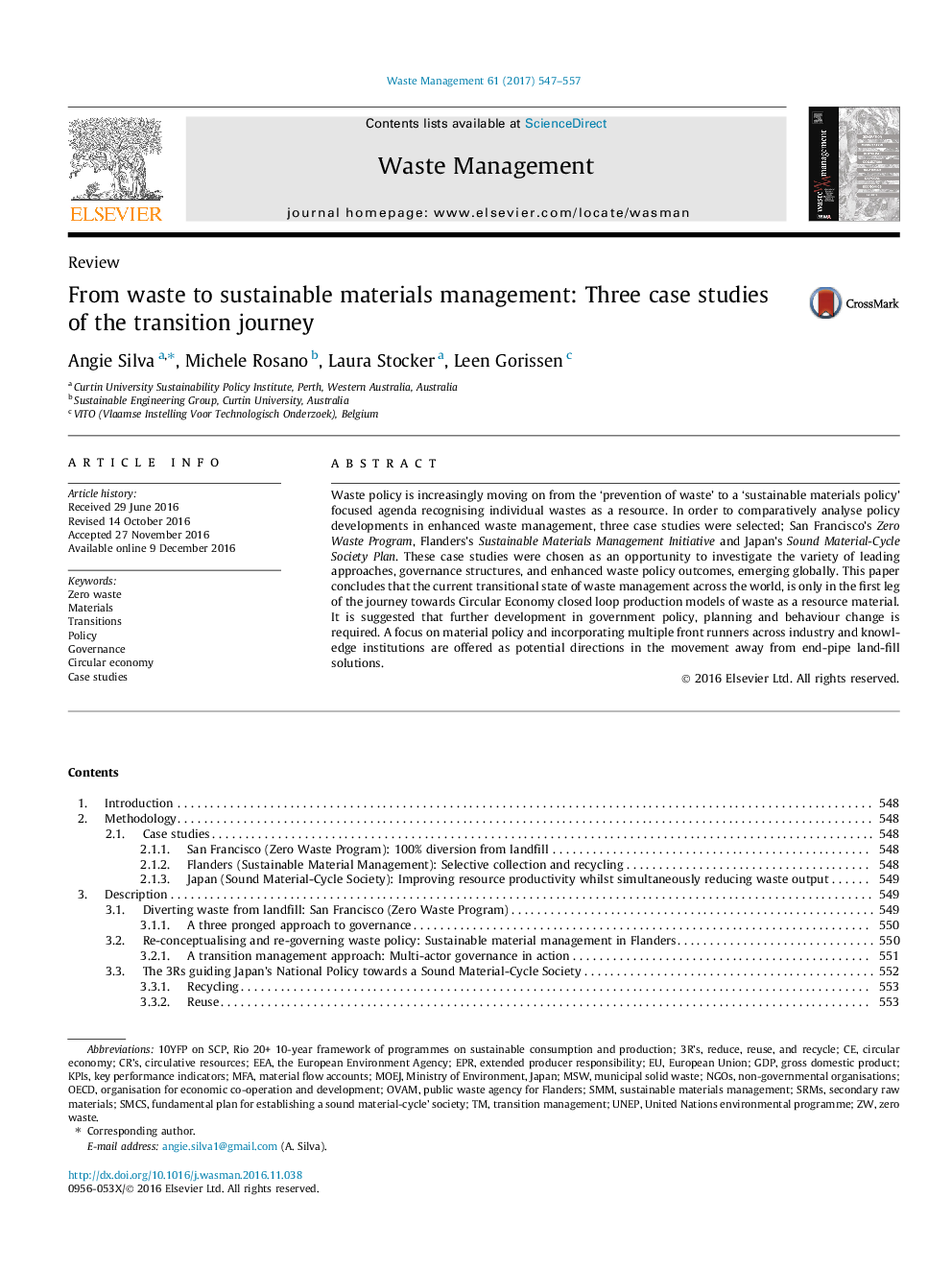| Article ID | Journal | Published Year | Pages | File Type |
|---|---|---|---|---|
| 5756991 | Waste Management | 2017 | 11 Pages |
â¢Comparatively explores and analyses three case studies implementing enhanced waste management programs.â¢Provides insights into innovative processes and governance frameworks emerging in this space.â¢Discusses the lessons and outcomes of each case study including where improvements are needed.â¢Concludes with future considerations in the transition from waste to materials management policy.
Waste policy is increasingly moving on from the 'prevention of waste' to a 'sustainable materials policy' focused agenda recognising individual wastes as a resource. In order to comparatively analyse policy developments in enhanced waste management, three case studies were selected; San Francisco's Zero Waste Program, Flanders's Sustainable Materials Management Initiative and Japan's Sound Material-Cycle Society Plan. These case studies were chosen as an opportunity to investigate the variety of leading approaches, governance structures, and enhanced waste policy outcomes, emerging globally. This paper concludes that the current transitional state of waste management across the world, is only in the first leg of the journey towards Circular Economy closed loop production models of waste as a resource material. It is suggested that further development in government policy, planning and behaviour change is required. A focus on material policy and incorporating multiple front runners across industry and knowledge institutions are offered as potential directions in the movement away from end-pipe land-fill solutions.
